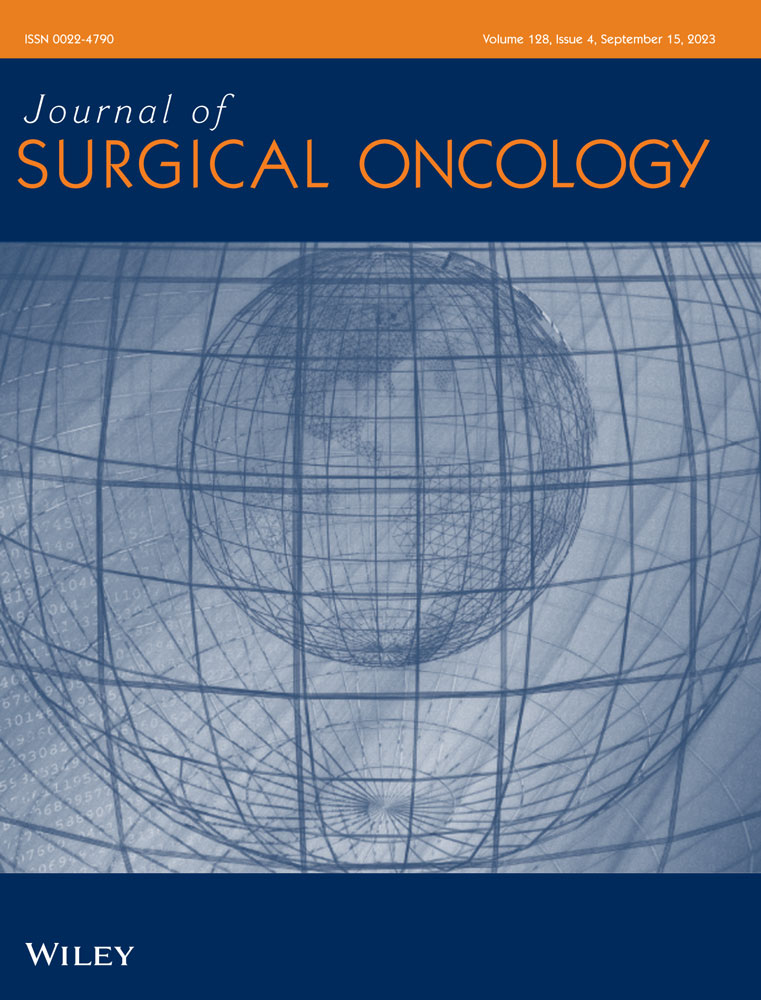Association between sarcopenia and postoperative complications in patients undergoing surgery for gastrointestinal or hepato–pancreatico–biliary cancer
Abstract
Background and Objectives
Despite surgical advances, postoperative complications persist, affecting oncologic outcomes and increasing treatment costs. It is important to identify a marker that can predict postoperative complications, which can help prehabilitate patients before surgery. This study evaluated sarcopenia as a predictive marker of postoperative complications in patients undergoing surgery for gastrointestinal (GI) or hepato–pancreatico–biliary (HPB) cancer.
Methods
Sarcopenia was assessed using the skeletal muscle index at the third lumbar vertebra on abdominal computed tomography. The predictive ability of sarcopenia was evaluated by adjusting for other clinicopathological factors.
Results
Of the 210 patients, 81 (38.57%) were sarcopenic. The overall morbidity and mortality were 33.81% and 2.86%, respectively. Major complications (Clavien–Dindo Grade ≥ III) were observed in 10.95% patients and sarcopenic patients were significantly more likely to develop major complications (p = 1.42 × 10−10). Sarcopenia (p = 6.13 × 10−6; odds ratio = 12.29) independently predicted postoperative complications and prolonged hospital stay (p = 0.01).
Conclusion
Sarcopenia objectively predicted the development of postoperative complications and prolonged hospital stay in patients undergoing surgery for GI or HPB cancer. This may facilitate the prehabilitation of patients planned for surgery to reduce the risk of complications.
CONFLICT OF INTEREST STATEMENT
The authors declare no conflict of interest.
Open Research
DATA AVAILABILITY STATEMENT
The data that support the findings of this study are available on request from the corresponding author. The data are not publicly available due to privacy or ethical restrictions.




